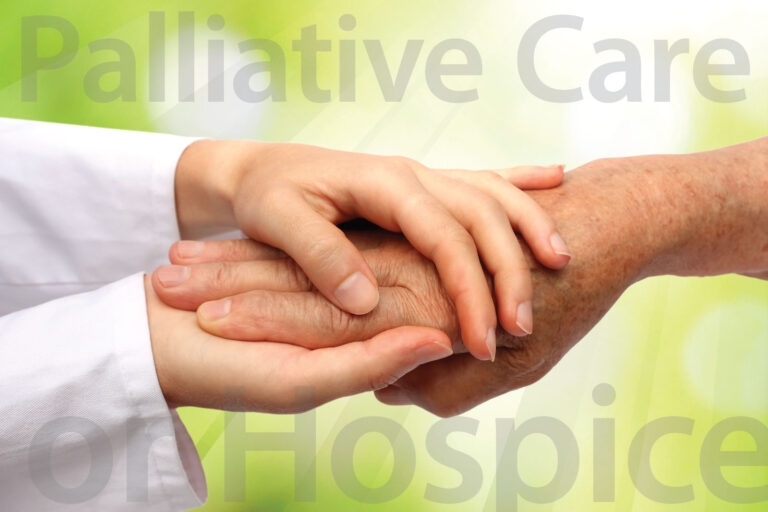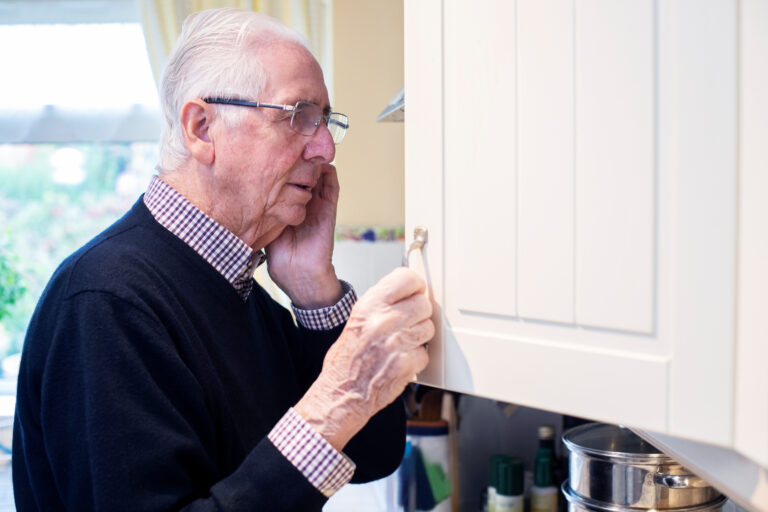For many people, dying is a complex, emotional process. Particularly if your loved one is approaching the end of their life with a terminal illness, they may feel it’s unfair that their time is being cut short. The last stages of life can be filled with grief, fear, anxiety, and unease for both the dying person and their family.
In many ways, it’s human nature to want to hold on at the end of life. We may fear the unknown of what happens after life or may not be ready to part with our loved ones. But sometimes, holding on at the end of life can cause unnecessary suffering. If your loved one is approaching their final days and you believe they’re suffering more than they should, read on. We’ll explain the reasons someone might hold on at the end of life, and how you can help them let go in peace.
Are you or a loved one living with a chronic or terminal illness?
The Sage Family of Companies is here to help.
Are you or a loved one living with achronic or terminal illness?
The Sage Family of Companies is here to help.
Why a Dying Person May Hold On
Humans have a natural instinct to stay alive. Self preservation is passed down to us from our ancestors and is what enables us to provide food, shelter, protection, and love for ourselves and our families. When our bodies fail us from age or disease, our minds may not be ready to let go of life.
In addition to our natural instincts, there are a number of other reasons why a dying person may hold on at the end. They may feel there’s still more they want to do or see in their life, and frustrated or angry that they’re no longer able to. They may not want to leave family and friends or cause them pain or grief by dying.
Some people may feel they have “unfinished business” and need to reconcile with an estranged loved one or a friend. Still others may be afraid of dying and what comes after life.
All of these reasons are completely understandable, but when a dying person holds on at the end of life, it can cause further pain and suffering.

Signs that a Dying Person is Holding On
When a dying person is holding on, their loved ones can often sense what’s happening. They may feel a sense of anxiousness, distress, or fear from their loved one when spending time with them.
If your loved one is at the end of their life but is struggling to hold on, they may experience the following:
- Restlessness and agitation
- Anxiety
- Emotional pain or distress
- Trouble sleeping
- Shouting or calling out
- Grimacing or frowning
- Disorientation or confusion
- Pulling at their clothes or bed sheets
- Becoming withdrawn from others
- Hallucinations
- Grabbing for loved ones’ hands and hugging them very tightly
How to Help a Loved One Let Go During the Dying Process
If you feel that your loved one is holding on at the end of life, and it’s causing suffering, there are a number of ways you can help them let go.
Tell Them It’s Okay to Let Go
First, assure them that while it’s normal to want to hold on at the end of life, it’s okay to let go. Don’t force things, but do remind your loved one of how much you love them. Let them know you’re not angry and don’t hold any resentment that they’re dying. Even if your loved one is unconscious or awake but unresponsive, continue talking and giving them reassurances. They may very well hear you.
Help Them Find Comfort Physically
Make sure your loved one feels as physically comfortable as possible by providing extra pillows at the head of the bed, blankets, and comfortable clothing. Play their favorite music or television show. Consider using candles, diffusers, or perfumes to bring their favorite scents into their room. Also, ask them about their preferences for temperature and lighting, to keep their surroundings as comfortable as possible as they prepare to transition out of life.
Consider Counseling
A bereavement counselor or hospice social worker can provide support if your loved one is experiencing grief, anger, or frustrations around dying. The Sage Family of Companies has specially trained professionals on hand to help patients and their loved ones process and cope with the complex emotions that arise during the dying process.
Help Them Make Peace With Estranged Loved Ones
If your loved one wishes to speak to or make peace with an estranged loved one or friend, try to help them arrange it, either with a visit or phone call. If you’re unable to get in touch with the individual, offer to deliver a written or verbal message from your loved one.
Arrange a Meeting With a Faith Leader
Finally, encourage a visit from a chaplain or other faith leader if your loved one has any spiritual concerns or fears about the afterlife. Your hospice care provider can help arrange this as your loved one gets closer to death.

Hospice Care at the End of Life
The goal of hospice care is to provide relief from pain, and provide comfort at the end of life for people with a terminal illness. This is done in a comprehensive approach by a hospice care team, which consists of doctors, nurses, specialists, counselors, social workers, faith leaders, and volunteers.
If your loved one is holding on at the end of life, their hospice care team can provide comfort, counseling, and end-of-life care to help them let go and transition peacefully. Just as family members and friends are a major part of caregiving, they’re also included in hospice care. Bereavement counseling, caregiving assistance, and access to support groups are all available for loved ones to help them cope during this difficult time.
Are you or a loved one living with a chronic or terminal illness?
The Sage Family of Companies is here to help.
Are you or a loved one living with achronic or terminal illness?
The Sage Family of Companies is here to help.
Signs that Death Is Near
When death is imminent, a number of bodily changes take place that loved ones should be aware of and ready for.
In the last few days before death, your loved one may:
- Stop eating and drinking
- Feel extremely weak and tired
- Sleep most of the time
- Become withdrawn
- Lose control of their bladder or bowels
- Appear confused or disoriented
Signs of the last few hours before death include:
- Irregular heart beat
- A drop in body temperature and blood pressure
- Changes in breathing or gasping for air
- Mottled skin that appears purple of blue in color
Frequently Asked Questions
Here are some frequently asked questions about holding on at the end of life.
How Long Does the End of Life Stage Last?
How long the end of life stage lasts can vary from person to person. Typically, when someone has exhibited signs and symptoms that death may be near, such as stopping eating and drinking, sleeping most of the time, appearing withdrawn, losing control of their bladder and bowels, and experiencing changes in breathing, death is likely within a few days.
Can Hospice Tell When Death is Near?
No one can predict exactly when and how a person will die or when their final moments will be. However, your hospice care team consists of specially trained professionals who know the signs and symptoms that signal when someone is close to death. They will alert family members at this time and prepare them for what’s to come.
Summary
For most people, dying is a difficult time, fraught with complex emotions. It’s human nature to want to go on living. There are a number of reasons someone may hold on, including not wanting to leave their loved ones behind, a fear of the unknown after life, and a sense of “unfinished business” left on Earth. These are all completely understandable emotions, but hanging on at the end of life can cause further suffering for both the dying person and their family.
If your loved one is at the end of life and holding on, hospice care can help bring them comfort at this time and ultimately, help them let go.
The Sage Family of Companies is here to answer any questions you may have.






